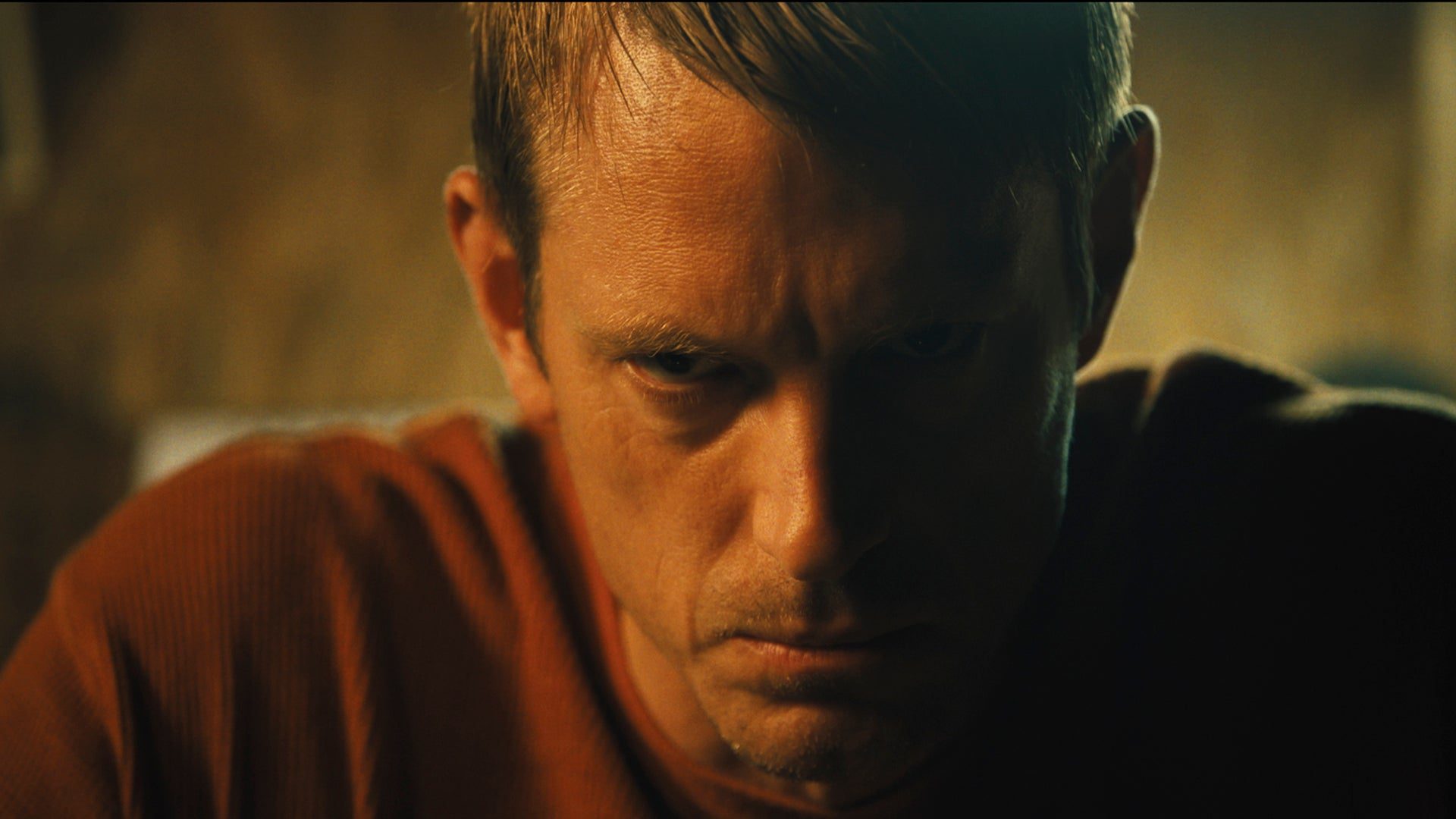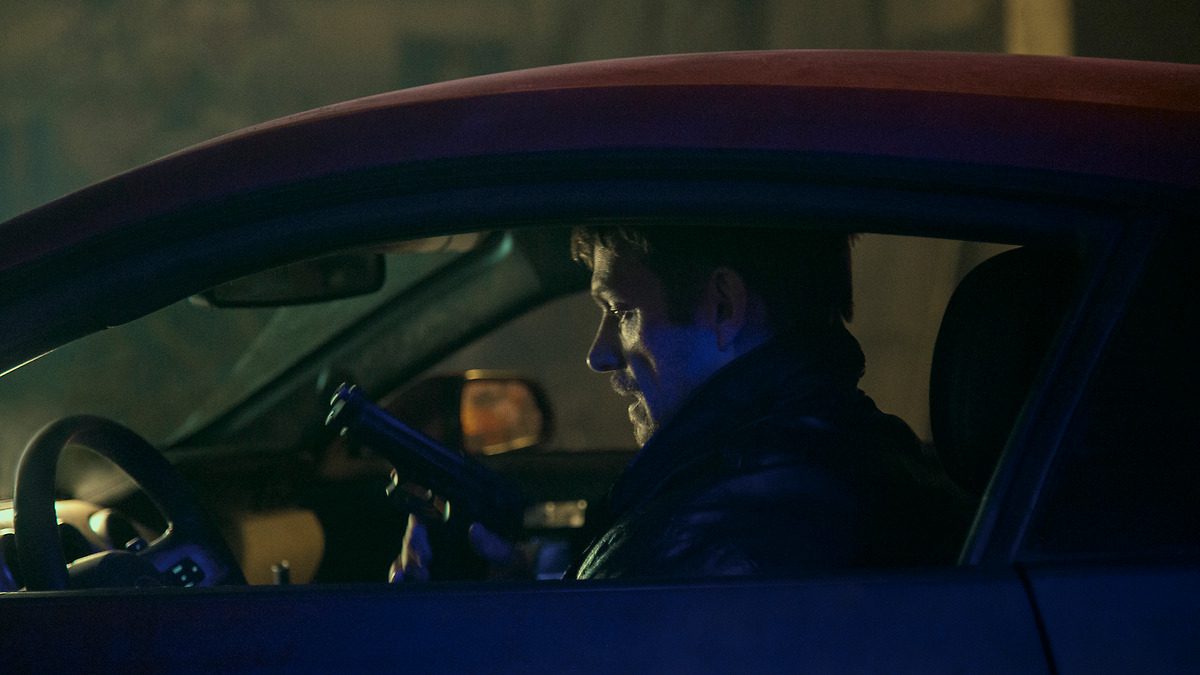REVIEW: Silent Night (2023)
Silent Night, the newest entry in the Christmas action subgenre, is director John Woo’s first American film since 2003’s Paycheck, and I can understand his disillusionment after that one. Fortunately, Silent Night is a lot better than that, and while it’s not a classic or as good as some of Woo’s better movies, it’s got an interesting hook that it makes the most of as it winds down the dark alleys and tortured crevices of the soul that we usually avoid at Christmastime.
One Christmas Eve, Brian Godlock (Joel Kinnaman) watches his son die after being caught in the crossfire of a gang war. Brian is severely injured as well, losing his ability to talk after being shot in his throat. Over the next year, Brian sinks deeper and deeper into a black hole of grief until he finds the only outlet that may bring him peace: revenge.
The trailer advertised Silent Night as a very different film than it is. It’s not the rousing, blood-pumping, get-up-and-cheer action flick the ads made it appear to be. It’s more a dark, dismal exploration of grief and tragedy, one where you feel sorry for all involved (outside of the bad guys) and wish they could somehow get past the nightmare their loss brings them. The movie embraces that tone, and every aspect of it furthers the idea that Brian is a regular guy being consumed by his pain. His fixation on vengeance isn’t portrayed as cool or noble but as an attempt for Brian to anesthetize himself to his grief when alcohol fails him. This is a broken man, not a righteous avenger.
Even the movie’s hook complements this. Brian isn’t the only character who doesn’t talk in Silent Night; the film has no dialogue from anyone, save a few instances of background chatter. This is to emphasize how alone Brian is; he can’t communicate with anyone, and he can’t hear anyone try to talk to him either. In the absence of dialogue, the film finds novel ways to convey information; we learn characters’ names through text messages and tombstones and that Brian worked as an electrician because we see him dropped off at home by a buddy in a company truck, while news reports tell us the date to establish the passage of time. Silent Night never cheats for expediency, but neither does it get boring.

That includes the first two acts, where Brian first wallows in misery and then prepares to hunt down his son’s killers. For about a half hour, not much happens aside from Brian’s physical recovery and heavy drinking while his wife looks on in frustration. When he begins planning and training for his revenge, the pace picks up considerably. This is Silent Night putting us in Brian’s place, making us feel the monotony of his pain and the adrenaline rush of finding an outlet for it. Brian’s training is an extension of this because it goes about as well as it would for any normal person. When he first fires a gun, he misses the target almost completely, getting a couple of shots in the far corner. He’s got a lot of work to do, and since he’s training himself, he doesn’t have the expert help someone needs to become a killing machine.
When the action starts, we again feel like Brian is who we would be if we were trying to be a vigilante. Despite trying to mold himself into a badass, he makes a lot of mistakes, and he finds that killing is not as easy as he thought it would be on several levels. It’s a great twist on the revenge story, and it makes the whole ordeal more sad than cathartic. At the same time, Silent Night doesn’t judge Brian or say that revenge is bad in itself – nor does it try to equivocate Brian with the scum who killed his boy, thankfully. It’s just a portrait of a guy clinging to anything that can make him feel better while his world crumbles around him. Joel Kinnaman is very good in the lead, having to do all the heavy lifting with his face and body. He makes you feel Brian’s pain as much as anything in the film, and while the rest of the actors don’t have much to do, Kinnaman’s performance easily carries Silent Night.

The drawback to that is that there is a huge disconnect between the viewer and the rest of the movie. There are reasons for that, and it works to those ends, but it’s still not as engrossing as it would have otherwise been. For example, the villains are non-entities, a group of generic gangbangers with no personalities or distinguishing features aside from their tattoos. This is to make you feel how Brian does; the gang is an almost otherworldly entity, something from a section of reality that isn’t supposed to intrude on a normal family’s life like this one does. The Godlocks get caught up in the shooting at random, no differently than if the little boy were struck by lightning. As such, the gang members are shown as regular people see them: violent animals completely removed from society. It works for the movie, but it doesn’t invite repeat viewings because there’s nothing memorable or interesting about them.
The same is true of the action. It’s mostly good, as you’d expect from John Woo (although, again, not as good as his better stuff), although there are some weird shots that I wish were different. A couple of times, the focus is not on the guys being shot but on Brian doing the shooting, and it’s disappointing because it would have been nice to see the shots land, especially as the villains are just slightly out of camera range. The action itself is sloppy, but not in a bad way; it’s being committed by someone who doesn’t know what he’s doing, so there are a lot of misses and poorly timed hits. Like the rest of Silent Night, it’s more harrowing and scary than exciting, making it clear that Brian is out of his depth. And like the villains, it works for the film, but it’s not something you’ll probably want to see again.

And that’s ultimately how I feel about Silent Night. It’s a good movie, filmed and acted well, and I liked it as I watched it, but I think once was enough.
Silent Night (2023)
Plot - 8
Acting - 8
Directing/Editing - 8
Music/Sound - 9
Action - 8
8.2
Good
Silent Night is a well-made thriller about despair and grief that manifests in violence, with a good performance from Joel Kinnaman, but it’s not something you’ll want to experience again.







